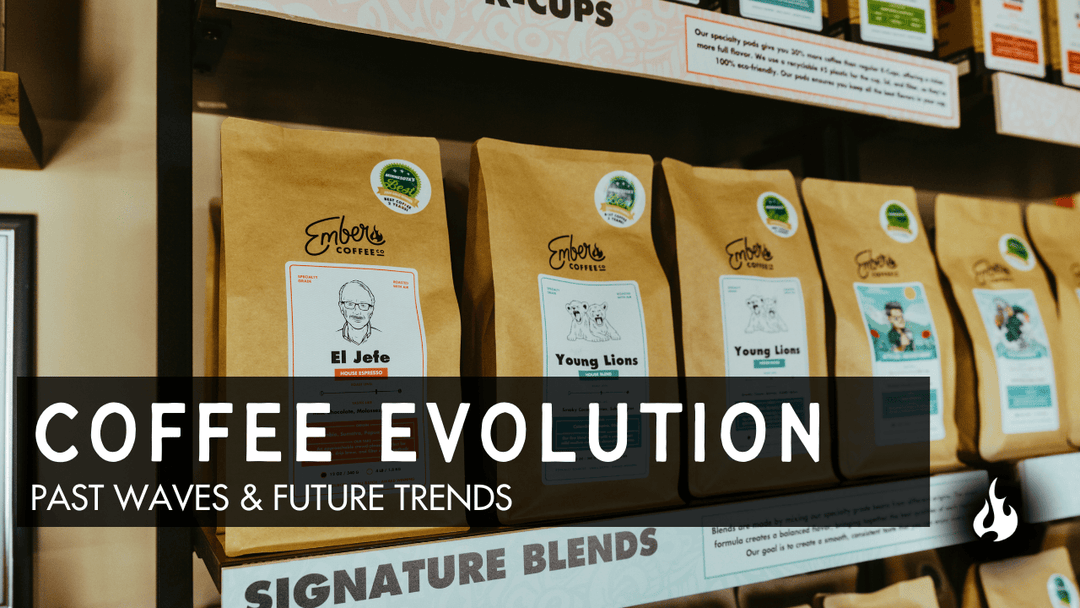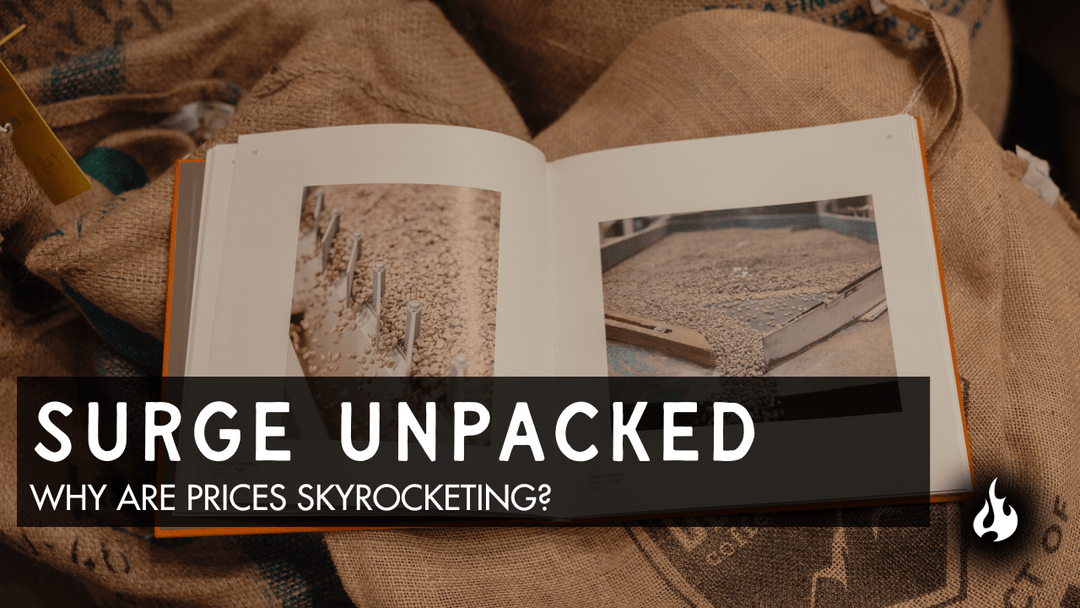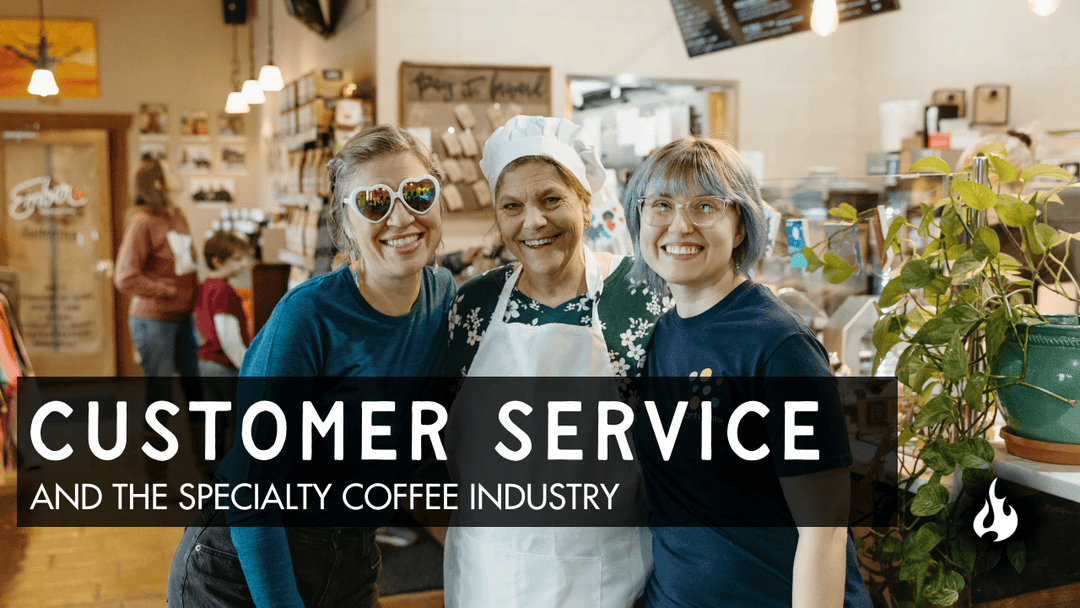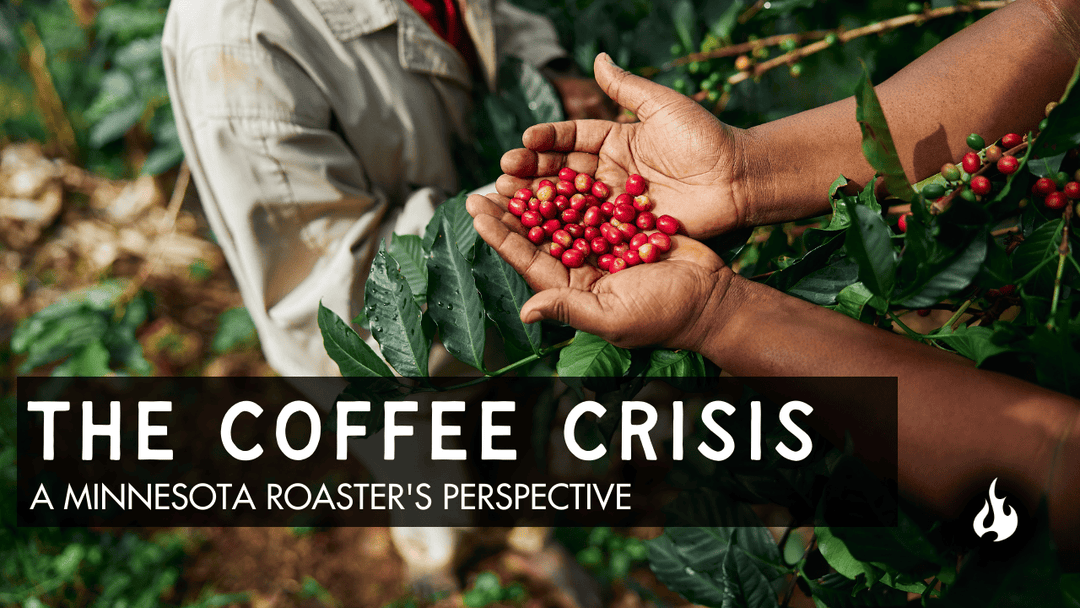What Was Coffee Originally Used For?
What Was Coffee Originally Used For?
Coffee gives us energy and warmth in the morning, but its story started long before espresso machines and fancy brewing methods.

Coffee gives us energy and warmth in the morning, but its story started long before espresso machines and fancy brewing methods.
Long ago, coffee had very different uses. Ethiopian herders used it to stay energized on long trips, and Sufi monks used it to stay awake during prayers at night.
Learning about coffee's early uses shows how people have been creative and shared ideas across cultures. Coffee has been a food, a medicine, a way to bring people together, and a tool for spiritual focus. Each use tells us something about how people discovered and valued coffee over time.
For those who love coffee today, knowing its history can make every cup more meaningful. Coffee’s journey from the Ethiopian highlands to the world shows that it’s always been about more than just caffeine—it’s about connection, tradition, and seeking something special.

Coffee as Food in Ethiopia
Ethiopia holds the distinction of being coffee's birthplace, but the earliest uses bear little resemblance to your morning brew. Archaeological evidence and oral traditions suggest that coffee cherries were first consumed as food rather than drink. Local herders discovered that eating the bright red cherries provided sustained energy and alertness during long treks across the Ethiopian highlands.
The preparation method was remarkably practical. Coffee cherries were often chewed fresh, releasing both the sweet fruit pulp and the stimulating compounds within the seeds. For longer journeys, Ethiopian communities developed an ingenious portable energy source by grinding coffee seeds and mixing them with animal fat, creating dense, nutritious balls that could sustain travelers for days.
This early use reveals coffee's fundamental appeal—its ability to provide both pleasure and function. Even without understanding caffeine's chemistry, these early coffee consumers recognized something unique about this particular fruit. The energy it provided wasn't just caloric; it offered mental clarity and physical endurance that made difficult work more manageable.
These Ethiopian origins established a pattern that would follow coffee across continents: wherever it went, people found ways to harness its stimulating properties for their specific needs and challenges.
Coffee's Transformation in Yemen
By the 15th century, coffee had crossed the Red Sea into Yemen, where it underwent its first major transformation. Rather than eating the fruit, Yemeni communities began brewing a drink called qishr by boiling dried coffee cherries. This marked coffee's evolution from food to beverage, setting the stage for its global spread.
The shift happened largely through Sufi mystics who embraced coffee as a spiritual tool. These Islamic practitioners found that coffee helped them maintain focus and alertness during extensive nighttime prayer sessions and meditation. The beverage became integral to their religious practice, earning coffee its first role as a ritual aid.
This spiritual connection was profound. Sufi communities viewed coffee not merely as a stimulant but as a gift that enhanced their ability to connect with the divine. The drink helped them achieve the mental state necessary for prolonged worship, making it an essential part of their spiritual toolkit.
Yemen's port city of Mocha became a crucial hub for coffee trade, with the beverage spreading to other parts of the Islamic world. The Yemeni innovation of brewing coffee established the foundation for all future coffee preparation methods, though the spiritual context would eventually give way to more secular applications.
Rise of Coffeehouses in the Islamic World
As coffee spread throughout the Ottoman Empire in the 16th century, it evolved from spiritual aid to social catalyst. Cities like Cairo, Mecca, Damascus, and Istanbul saw the emergence of qahveh khaneh—coffeehouses that became vibrant centers of community life.
These establishments served far more than coffee. They functioned as informal universities where merchants, scholars, artists, and common citizens gathered to exchange ideas, conduct business, and engage in political discourse. The coffeehouses became known for hosting poetry readings, musical performances, and chess matches, creating a rich cultural atmosphere unlike anything else in these societies.
The social power of these coffeehouses was so significant that some rulers viewed them with suspicion. The combination of caffeine-fueled alertness and open conversation created an environment ripe for political discussion and potential dissent. Several attempts were made to ban coffee and close coffeehouses, but the cultural demand proved too strong to suppress.
This period established coffee as more than a beverage—it became a tool for building community and facilitating human connection. The coffeehouse model would later travel to Europe, where it would play a crucial role in intellectual and commercial development.

Coffee's Introduction to Europe
When coffee reached Europe in the 17th century, it initially entered through medical channels. Physicians prescribed it for various ailments including digestive troubles, melancholy, and general fatigue. This medicinal framing helped overcome initial European skepticism about this exotic beverage from the Islamic world.
The medical applications were diverse and sometimes creative. Some doctors recommended coffee for clearing mental fog, while others prescribed it as a treatment for what we might now recognize as depression. European medical texts from this period describe coffee as a powerful remedy that could restore both physical and mental vitality.
However, coffee's true European breakthrough came as people discovered its practical benefits in daily life. Most Europeans traditionally consumed beer or wine with their morning meals, partly because water quality was often questionable. Coffee offered a revolutionary alternative—a hot beverage that provided clarity and energy rather than the dulling effects of alcohol.
This shift from alcoholic morning beverages to coffee had profound implications for European productivity and intellectual development. Workers and thinkers who started their days with coffee rather than ale found themselves better equipped for complex tasks and clear reasoning.
Coffeehouses and the Enlightenment
European coffeehouses, particularly in London and Paris, became known as "penny universities"—places where anyone could purchase a cup of coffee and gain access to newspapers, intellectual debate, and the exchange of ideas. These establishments played a crucial role in fostering the intellectual movements that would define the Enlightenment.
London's coffeehouses specialized by profession and interest. Lloyd's of London, the famous insurance market, began as Lloyd's Coffee House, where merchants gathered to discuss maritime risks and trade opportunities. The London Stock Exchange traces its origins to coffee trading that took place in these establishments.
In Paris, coffeehouses became centers of revolutionary thought where philosophers, writers, and political thinkers gathered to debate ideas that would reshape society. The combination of caffeine's stimulating effects and the social environment of coffeehouses created ideal conditions for intellectual breakthroughs and collaborative thinking.
This period cemented coffee's role as an intellectual stimulant that went beyond mere alertness. The beverage became associated with progress, innovation, and the free exchange of ideas that drove societal advancement.
Minnesota's Coffee Heritage Continues the Tradition
The journey from Ethiopian highlands to European coffeehouses finds its continuation in places like Minnesota, where local roasters honor coffee's rich heritage while crafting exceptional modern experiences. Minnesota coffee roasters understand that great coffee has always been about more than the bean—it's about creating moments of connection, clarity, and satisfaction.
When you explore Minnesota coffee options, you're participating in a tradition that spans centuries and continents. The best coffee in Minnesota reflects the same values that made coffee precious to Ethiopian herders, Sufi mystics, and Enlightenment thinkers: quality, community, and the pursuit of something extraordinary.
Local Minnesota coffee roasters bring this historical appreciation to their craft, understanding that each cup carries forward coffee's legacy as both functional fuel and social connector. Coffee roasters near Minneapolis continue this tradition by creating spaces and products that honor both coffee's origins and its future possibilities.
Frequently Asked Questions
Was coffee really eaten before it was drunk?
Yes, in Ethiopia, coffee cherries were often chewed fresh or ground and mixed with fat to create portable energy balls. Brewing as a liquid beverage developed later in Yemen.
Why did Sufi mystics embrace coffee?
They found coffee invaluable for staying awake during long nights of prayer and meditation. Its stimulating properties helped them maintain focus and devotion during extended spiritual practices.
Why were coffeehouses so important historically?
Coffeehouses offered something unique: a non-alcoholic beverage that encouraged alertness and conversation. They became centers of commerce, culture, and intellectual exchange in both the Middle East and Europe.
Was coffee ever considered dangerous?
Yes, various rulers and religious leaders attempted to ban coffee because they feared the conversations in coffeehouses might encourage political dissent. These bans ultimately failed due to coffee's popularity.
Why did Europeans switch from alcohol to coffee in the morning?
Beer and wine were common breakfast drinks, but they dulled the senses. Coffee provided stimulation and clarity, making it ideal for the intellectual and commercial demands of daily life.

The Enduring Appeal of Coffee's Original Purpose
Coffee's journey from Ethiopian food to global phenomenon reveals something profound about human nature and our relationship with this remarkable plant. Throughout every transformation—from energy food to spiritual aid, from social catalyst to intellectual fuel—coffee's core value has remained constant: its unique ability to provide both pleasure and function.
Michael Sivetz captured this essence perfectly when he noted that coffee's "only value is to give the consumer pleasure and satisfaction through flavor, aroma, and desirable physiological and psychological effects." This fundamental truth explains why coffee transcended cultural boundaries and became one of the world's most universally cherished beverages.
Understanding these origins adds depth to every cup we drink today. When we appreciate the craftsmanship of local roasted coffee or gather in cafes for conversation, we're participating in traditions that stretch back centuries. Coffee has always been about more than caffeine—it's about human connection, enhanced focus, and the simple pleasure of something done well.
The next time you savor your morning brew, remember the Ethiopian herders who first discovered coffee's power, the Yemeni Sufis who transformed it into a beverage, and the countless communities that have found in coffee a source of both energy and joy. You're part of a story that continues to unfold with each perfectly roasted bean and carefully crafted cup.
Ready to experience coffee's rich heritage for yourself? Try Minnesota's best local roast and discover how centuries of coffee tradition come alive in every exceptional cup.







